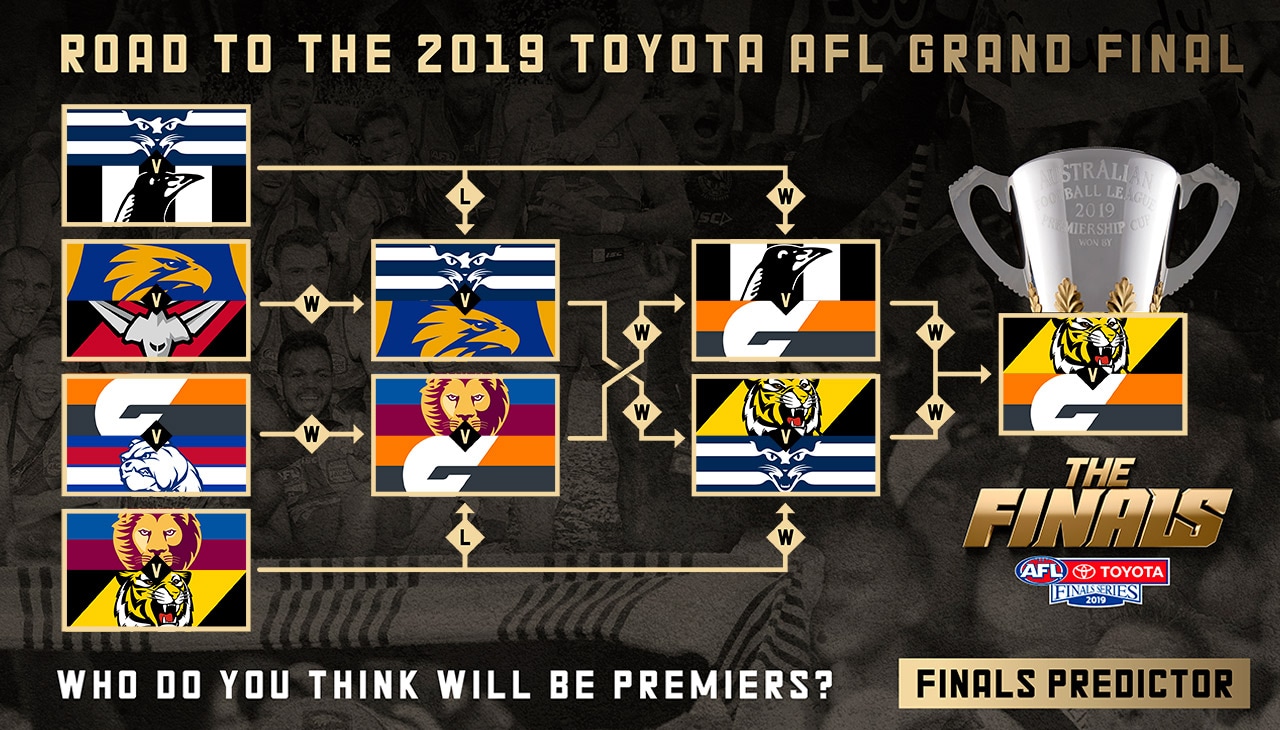EIGHT seasons after making its AFL debut, Greater Western Sydney is into the 2019 Grand Final.
The journey began long before that first season of 2012. Damian Barrett goes back to those early days, where the foundations for the success of the past four years were laid.
Inaugural GWS coach Kevin Sheedy.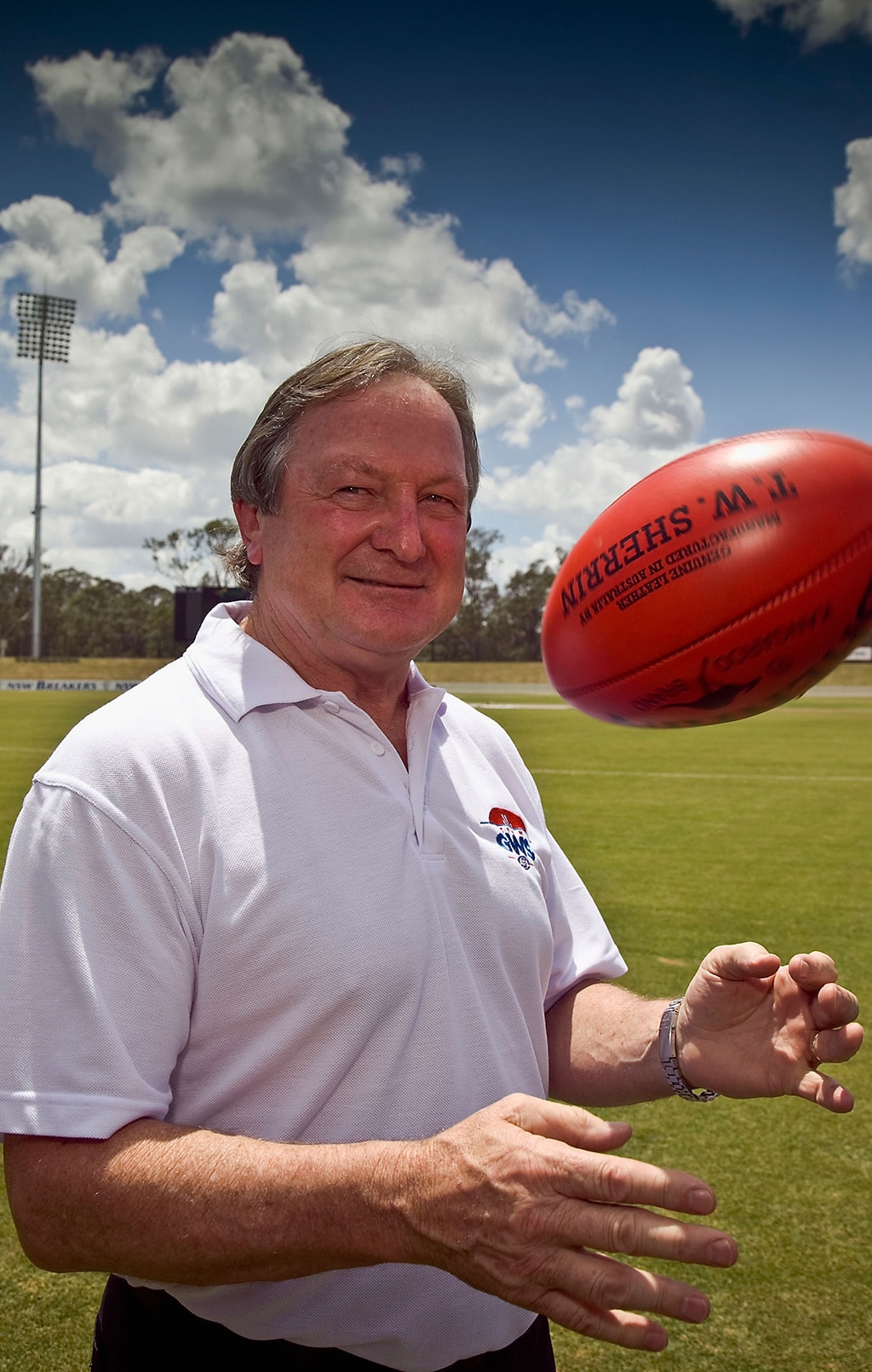
AMID a thousand ideas there were three non-negotiables.
One, recruit youth only, and then bring more youth in via the national draft when players chose to leave. Two, prepare for and then embrace the early pain of losing, knowing it would eventually lead to resilience in those prepared to stay. Three, adopt the American college life for the first two years, forcing everyone to live and breathe every moment – together – to fast-track rapport and friendship.
This was the key strategy of the GWS start-up - signed off and committed to two years before the outfit was to play its first game in the AFL in round one, 2012 – which on Saturday sees it play in a Grand Final against Richmond, a team established in another century and landscape 134 years ago.
The Giants after their first AFL game in round one, 2012 - a 63-point loss to the Swans.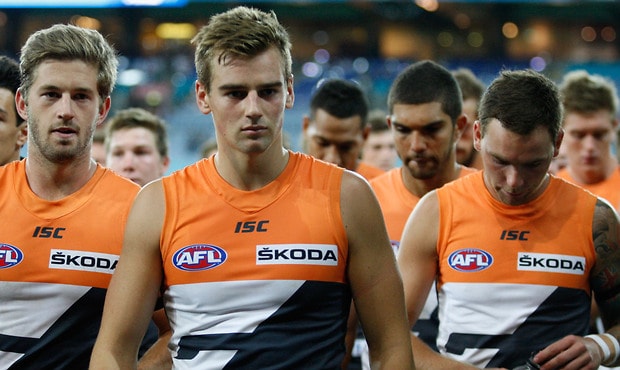
The Giants were adamant they needed to avoid the actions of previous start-ups – Brisbane Bears in 1987 and Gold Coast Suns in 2011, where older players from other clubs were recruited to form the initial base.
Graeme Allan and Stephen Silvagni, the men empowered with establishing the playing list of the Giants, both knew success would not be instant. They felt it would be a waste of money and opportunity to pay massive money to players who would be unlikely to still be at their best when the regular wins came.
Allan and Silvagni refused to be part of this article, but their names were raised early in the many conversations this week focusing on the keys to the Giants' success.
Graeme Allan and Stephen Silvagni at the 2012 NAB AFL Draft.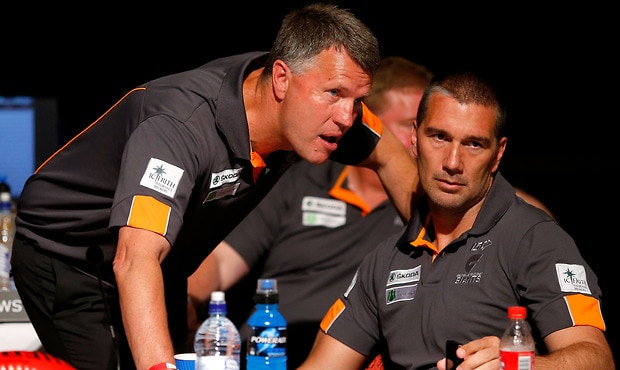
"You could write a book about 'Gubby'," Giants chief executive Dave Matthews said about Allan. "He was an outstanding choice for this club at that time because he had seen footy through being at a big club in Collingwood, then through the requirements of a new market when he went to Brisbane, and the importance of having a bond in a club in such a market.
"He knew what was required to keep a team together, to keep it competitive, the competitiveness was ingrained in him, and he just always a capacity to find a way to get on with things, be it juggling a salary cap, convincing someone to stay, which he often did with help of his wife Anne – I'd like to acknowledge her, too."
MATCH PREVIEW Tigers v Giants
Phil Davis, Callan Ward and Tom Scully were the established young stars recruited for the first year. The first two were installed as captains for year one, and remain in those positions. Ward will miss the Grand Final with a knee injury. Scully chose to leave at the end of last year.
In year one, ex-Lion Luke Power was also an official captain. He, along with Chad Cornes, Dean Brogan and James McDonald, were brought to the club for leadership more than playing ability, and all four had crucial coaching roles added to their job descriptions.
Former skipper Luke Power leads out the Giants in 2012.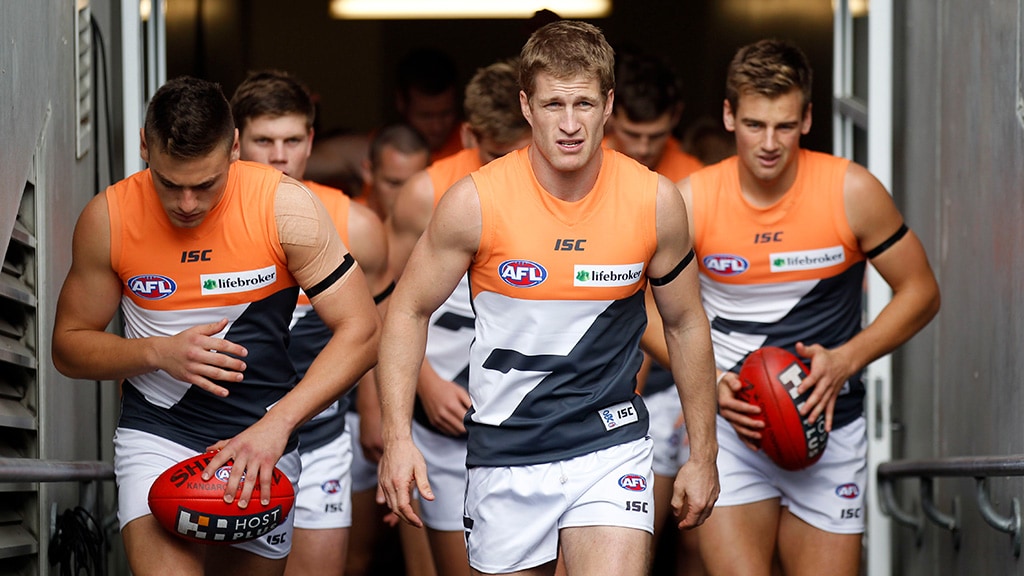
The Giants have lost a heap of players since their inception, but while fearing aspects of that, they actually planned for it, knowing that the high-end draft picks given back to them by other clubs would always allow it access to the best youngsters.
"There haven't been too many occasions where we've lost players we wanted to keep, (Adam) Treloar and (Dylan) Shiel are the ones, and every time we have lost a player, we're getting picks back," Matthews said.
"It started when Gub and SOS (Silvagni) targeted Ward, Davis and Scully. They were not much older than the kids being drafted, the plan being that they would still be a key to what we were doing when the kids matured and we became a good side.
"If you look at what the Suns did, they had great kids too, but you look at someone like a Campbell Brown who they brought it, he was in the commentary box by the time (Jaeger) O'Meara was 22."
WHAT TIME DOES IT START? Everything you need to know about the Grand Final
Treloar, Shiel, Taylor Adams, Devon Smith, Tom Boyd, Nathan Wilson, Josh Bruce, Rory Lobb, Scully, Will Hoskin-Elliott, Sam Frost, Cam McCarthy, Jack Steele, Lachie Plowman and Caleb Marchbank are all ex-Giants at other clubs.
Missing through injury from the Giants' Grand Final team will be Ward, future captain Stephen Coniglio and Jon Patton. Missing through competition for places in the 22 are Jackson Hately and Jye Caldwell and Ian Hill, all considered to be guns of the future.
And the Giants already have two picks in the first round of this year's NAB AFL Draft, after transacting with Essendon last year for Shiel.
The first two seasons of AFL life for the Giants was brutal. Two wins in year one, one in year two.
At the end of that second season, 2013, another big hit came. It was at this point when the club had planned to bring in an established superstar. But Buddy Franklin chose the Swans as his new home.
It was a massive shock to those who had courted him, but even it led the club down a path which has been crucial to reaching the 2019 Grand Final.
Lance Franklin chose the Swans over the Giants.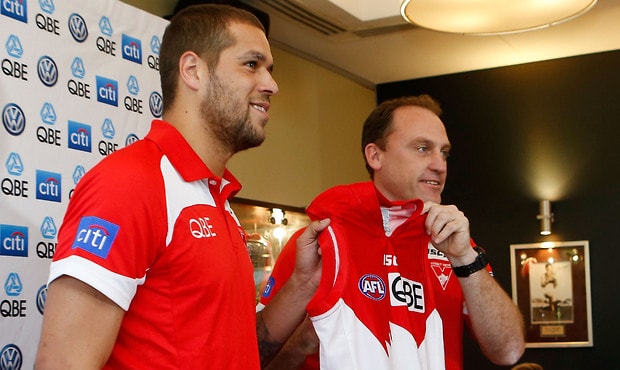
"That second year we went from the excitement of the challenge to having a lot of things to think about … we were back, unfortunately very quickly, to selling only hope to our young players," Matthews said.
Then-general manager of corporate affairs and communications Nick Johnston said:
"There was a sense of dejection when we missed Franklin, but as Gub said, stick to the plan, and it actually turned out to be a blessing because Heath Shaw and (Shane) Mumford then came in with points to prove."
To this point, the Giants had been adhering to the AFL mantra of needing to be based in Blacktown, the centre of the population surge in the greater western Sydney region.
But it was proving problematic. There was a lack of exclusive access to high-end facilities and no one wanted to live there. This led to the deal to move to the Homebush facility, which had long been established as a hub of elite sporting centres which were initially built for the 2000 Olympic Games.
A lucrative deal to embrace and play matches in Canberra was another strategy which reaped reward, after clever negotiations by chairman Tony Shepherd and influential director Peter Taylor, who has also worked closely on football strategy during the Giants' time in the AFL.
As the Giants have this week reflected on their journey to the 2019 Grand Final, many key people focus on two men crucial to the success: first coach Kevin Sheedy and recently re-committed Stephen Coniglio.
Kevin Sheedy and Stephen Coniglio at the 2011 draft.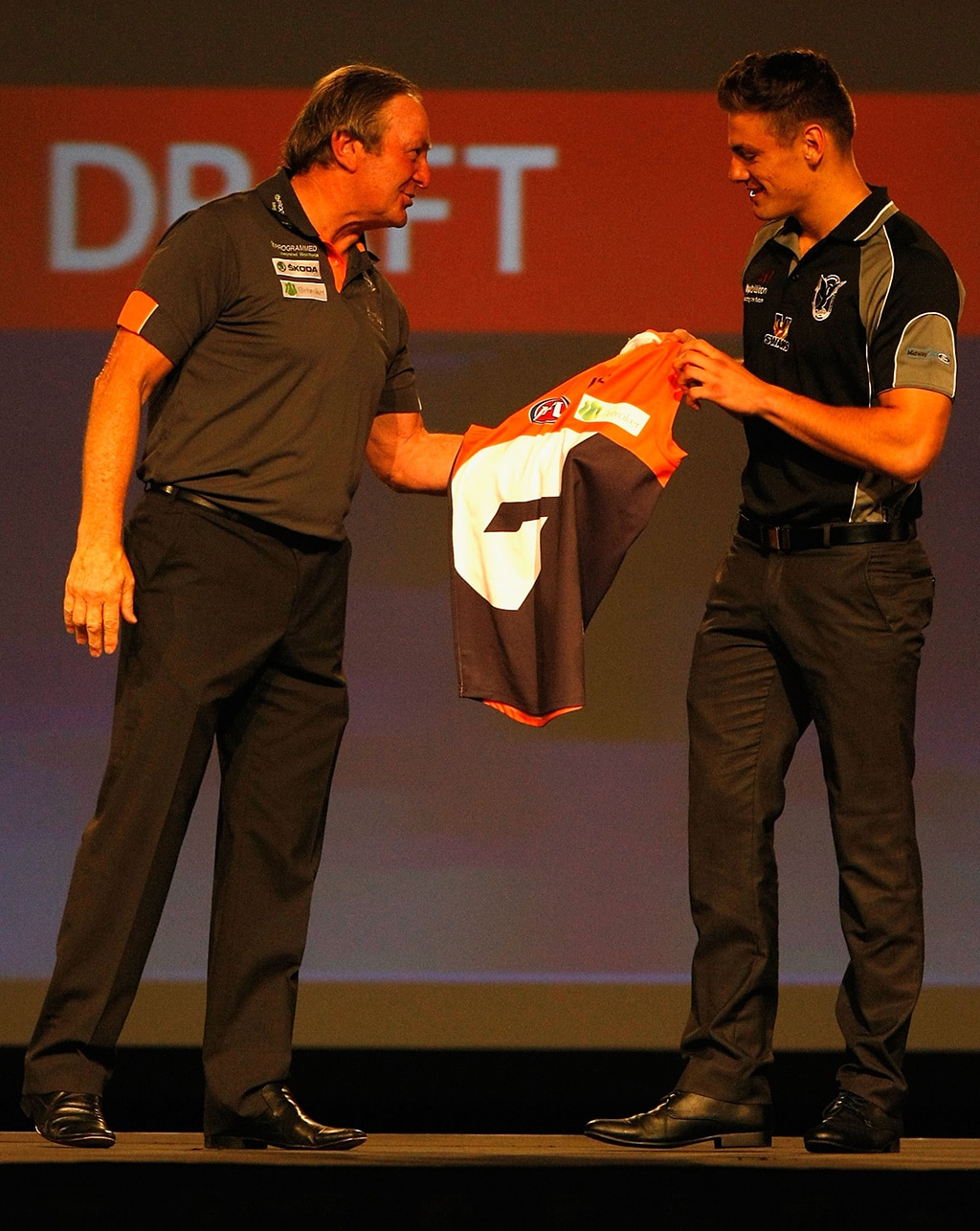
"The resilience that 'Sheeds' gave the club, and the preparedness to manage a succession project where he could delegate and yet still get us coverage in the media in some very tough circumstances was what actually set this club up," Matthews said.
Said Johnston: "Sheedy was enormous, kept the place real when we were getting thrashed. No one ever lost their heads. There was a 162-point loss to Hawthorn at the MCG (round 15, 2012), and Sheeds just exuded calm, no panic.
"He and Gub were the old stagers, the old heads who never lost their nerves and just kept picking the young kids.
"Sheeds was so selfless he absorbed losses for others – he took 21 losses for Leon (Cameron, who started as coach in 2014) in 2013."
The Giants look on after their biggest ever loss.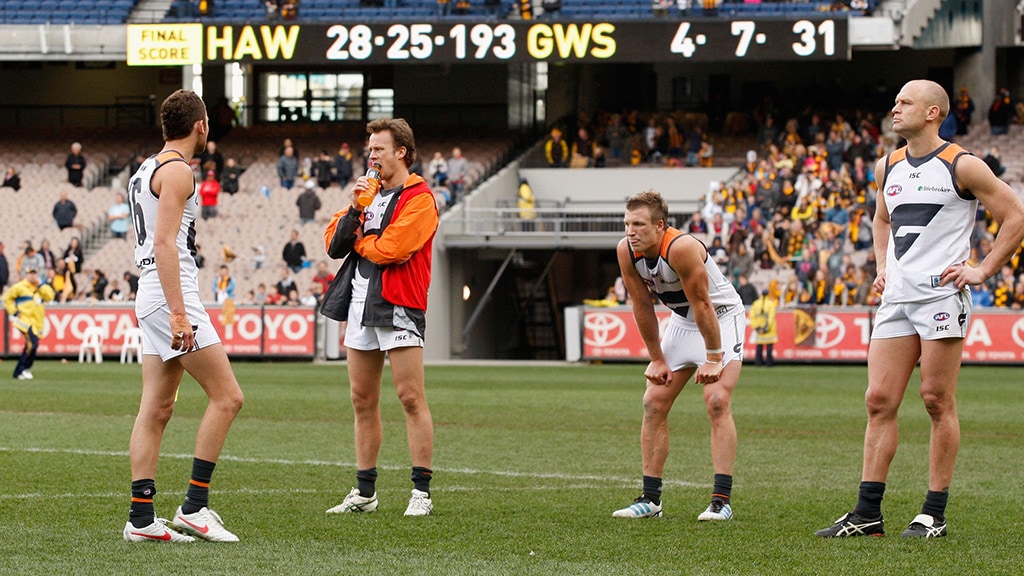
Coniglio injured his knee in round 17 this year, and despite training solidly during the week, won’t play in the Grand Final.
He took until late in the season to re-commit to the Giants, after Carlton and Hawthorn made massive pitches.
"Him staying was a great reflection of the culture and a reflection of how he sees us," Matthews said. "He is an amazing person, Stephen, and I have no doubt that there has been an instant positive reaction to what he did, and I also have no doubt that the decision he made to stay will influence how others see the future."
Stephen Coniglio as he arrived in Melbourne on Thursday.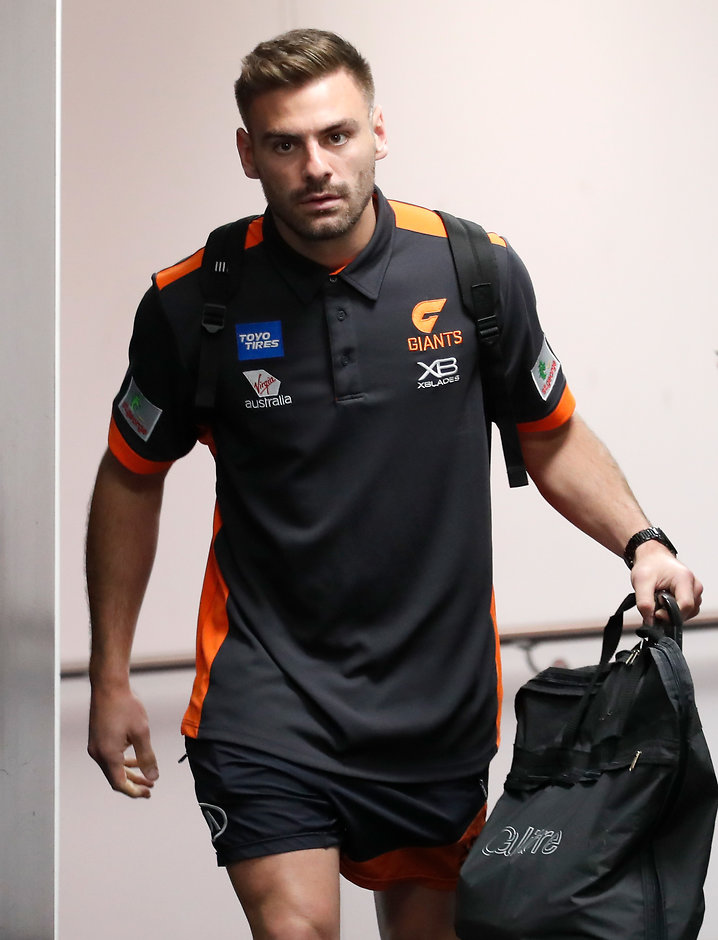
GWS has won finals in the past four seasons, and regardless of outcome of the Grand Final against Richmond, will forever benefit from the experiences of the occasion, just as the Swans did from their passage to the 1996 Grand Final.
Matthews even exchanged warm words this week with Treloar the day after the Giants in a preliminary final beat the team he left them for, Collingwood, at the end of 2015.
Until last Sunday, Matthews and Treloar hadn't been on great talking terms.
"The class of the man to do that – it was a fantastic message from Adam saying congratulations and what he thinks of the club and how it has developed … it meant a lot, he knows where we've come from, can see what we've achieved and what we want to achieve," Matthews said.


